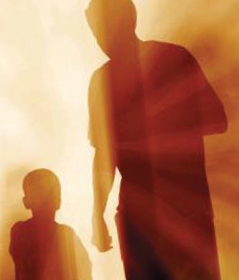People used to think that they could keep children safe just by telling them not to talk to strangers. Unfortunately, danger to your children does not come only from strangers. Also, a young child may not always be able to tell who a “stranger” is, or what situations represent “danger”, especially if they are approached by someone who appears friendly.
Good supervision
Parents should always ensure that young children are supervised and never allowed to go out alone. If you are not around, make sure that your child is accompanied by a trusted adult. Ensure that older children take a friend along if they go anywhere.
Communication
Talk to your children frequently, and pay attention to what they say. Show an interest in your children’s lives, and discuss their daily experiences and activities. Encourage them to talk to you about any situation or person that makes them uncomfortable, frightened or confused.
Keep track of your children at all times
Make sure you know where they are and whom they are with. Get to know your children’s friends and their families. Set a good example by keeping your children informed when you have to go somewhere, or if you are going to be late. This helps the older children to understand that you are concerned about their safety, and you are not just “spying” on them.
Who is looking after your child?
Do some background checks and obtain references of all the people who are working in your home or looking after your children. Drop in unexpectedly to make “spot checks” and always pay attention to your children’s feedback about the person. Never ignore a child’s remarks that a particular adult makes them feel scared or uncomfortable, even if that person is a close friend or relative.
Contact person
Your children should know how to contact you in case of an emergency. Also give them the name of an alternative adult family member they should contact if you are unavailable or ill. Make sure older children have some coins to make an emergency telephone call and carry a written record of emergency contact numbers.
Teach Your Child
Run – Teach your child to run from danger. Explain that “danger” is when anyone comes too close or tries to grab them. If this happens, tell them to pull away, scream and say loudly “This is not my father/mother”. Remind them that their safety is more important than being polite.
Don’t say a word – Tell your children that it is okay not to answer or talk, when someone they do not know approaches them to ask questions. If the adult is persistent, they can answer “I don’t know, I am a kid” or “Ask an adult” and walk away.
Pick-up from school
Ensure that the school authorities are informed about the arrangements for your child’s transport to and from school. Tell them that they should not allow your child to follow anyone else unless you have informed them in advance, and to double-check that you have made such a call by contacting you at an agreed number. Provide them with an alternative family member to contact in case of unexpected emergencies.
Teach your children not to follow anyone who comes to pick them up claiming to be your “friend” other than their regular transport without checking with their teacher.
Rules for outings
When visiting places such as the park or mall, do not allow children to wander off alone. Always accompany young children to the washroom in public places / malls. Make sure older children go in pairs or groups and not alone.
At the mall or park, show your children where the help/information booth is. In case you are separated, teach your children not to search for you on their own. Instead, they should head for the help/information booth.







Comments